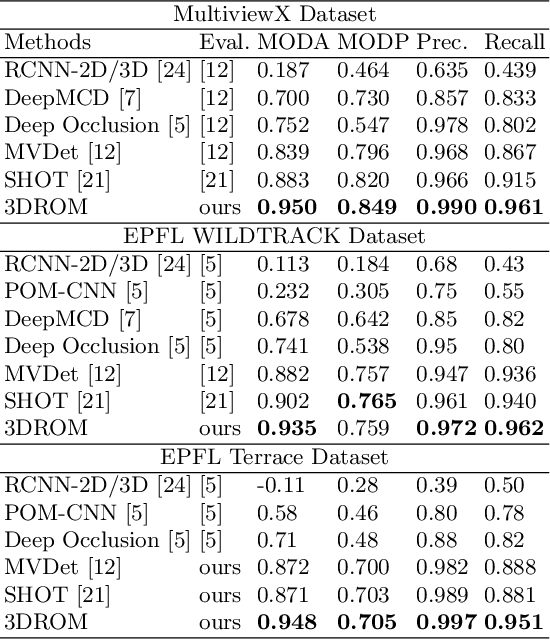3D Random Occlusion and Multi-Layer Projection for Deep Multi-Camera Pedestrian Localization
Paper and Code
Jul 25, 2022



Although deep-learning based methods for monocular pedestrian detection have made great progress, they are still vulnerable to heavy occlusions. Using multi-view information fusion is a potential solution but has limited applications, due to the lack of annotated training samples in existing multi-view datasets, which increases the risk of overfitting. To address this problem, a data augmentation method is proposed to randomly generate 3D cylinder occlusions, on the ground plane, which are of the average size of pedestrians and projected to multiple views, to relieve the impact of overfitting in the training. Moreover, the feature map of each view is projected to multiple parallel planes at different heights, by using homographies, which allows the CNNs to fully utilize the features across the height of each pedestrian to infer the locations of pedestrians on the ground plane. The proposed 3DROM method has a greatly improved performance in comparison with the state-of-the-art deep-learning based methods for multi-view pedestrian detection.
 Add to Chrome
Add to Chrome Add to Firefox
Add to Firefox Add to Edge
Add to Edge